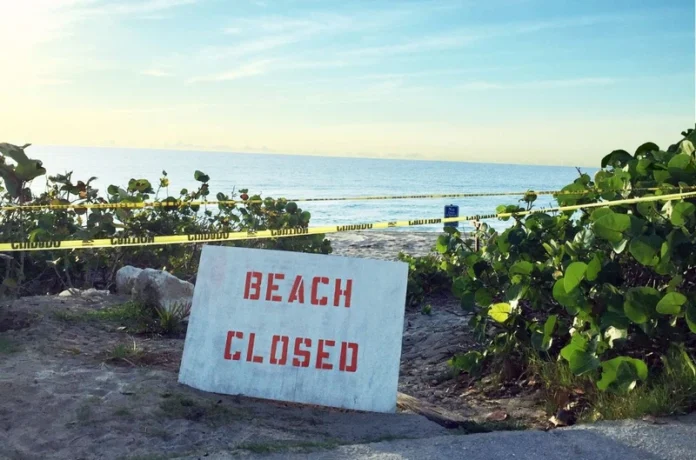Opting for a seaside dip in Durban post-rainfall might not be the healthiest choice, as recent findings by the eThekwini Municipality and its partner organizations, Adopt-a-River and Talbot, reveal E. coli levels soaring nearly 10 times above safety thresholds.
From Ushaka in the south to Country Club Beach in the north, E. coli levels have surpassed acceptable bathing standards.
A total of six Durban beaches, including Ushaka, Point Beach, South Beach, North Beach, Battery Beach, and Country Club Beach, have been categorized as “poor” and “critical” based on criteria set by the municipality and Talbot.
Since the release of these alarming test results, all six beaches have been closed to the public.
The municipality attributes the elevated E. coli levels to heavy rainfall, a common occurrence causing pollution from various rivers and streams to flow into the ocean. In the northern parts of Durban, where the Umgeni River meets the sea, beaches registered particularly high E. coli levels.
Country Club Beach, situated near the Umgeni river mouth, reported E. coli levels around 500 times over the recommended limit, as indicated by both Talbot’s and the municipality’s test results. This excess is believed to result from bacterial contamination originating from faeces.
Read | Multi-award-winning musician, Zahara Dies
The surge in E. coli concentrations is linked to damaged infrastructure caused by the April 2022 floods. Subsequently, consistent testing by the municipality and independent organizations has been crucial to safeguarding the well-being of residents.
Furthermore, informal settlements lacking proper sanitation systems along riverbanks exacerbate the problem.
E. coli, a bacterium commonly found in the intestines of humans and warm-blooded animals, can induce symptoms such as stomach cramps, diarrhea, and vomiting when present at high levels.
The municipality acknowledges that these results indicate elevated E. coli levels, primarily stemming from heavy rainfall washing pollutants from rivers, streams, and stormwater systems into the ocean. Consequently, beaches with compromised water quality have been temporarily closed, with ongoing re-sampling and monitoring underway.

